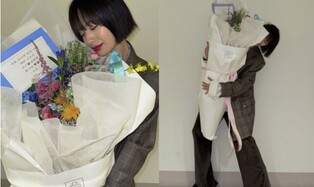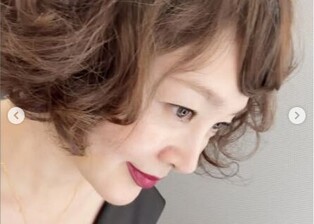 명사 (셀 수 있는 명사와 셀 수 없는 명사)
명사 (셀 수 있는 명사와 셀 수 없는 명사)
우리말과 달리 영어에서 명사는 셀 수 있는 명사(수로 말하는 명사)와 셀 수 없는 명사(양으로 말하는 명사)가 있습니다. 이 두 가지는 관사와 복수의 형태 / 쓰임이 구분되는 다양한 수식어/ 그리고 주어인 경우 동사와의 일치까지 주의할 내용이 많이 있습니다. 우선 셀 수 있는 명사인가 아닌가는 상식적인 기준에 맞는 것도 많지만 꼭 그렇지는 않으므로 무조건 외우는 것이 안전합니다.
1. 셀 수 있을까? 없을까??
위에서 말했듯이 '일반적으로' 말 할 수는 있지만, 예외가 많기 때문에 늘 사전에서 확인하도록 합니다. 사전에서는 셀 수 있는 명사는 C(countable / count) 로, 셀 수 없는 명사는 N (non count) / U (uncountable) 로 표시하고 있으므로, 명사라면 C 인지 N 인지 확인하는 습관을 갖도록 해야 합니다.
숫자로 세는 명사는 혼자 다니지 않는 여자에 비유할 수 있습니다. 보통 여자는 화장실에 갈 때도 친구와 함께 가거나 혼자 다니는 경우엔 가방이라도 가지고 나가지요. 셀 수 있는 명사도 문장안에서 반드시 둘 이상이거나(복수), 혼자(단수)의 경우는 관사나(a/the) 소유격(my,his..) 지시어(this/that) 중 하나가 반드시 있어야합니다.
그러면 셀 수 없는 명사, 즉 양으로 세는 명사는 남자와 같을까요? 그렇진 않습니다. 셀 수 없는 명사는 복수형이 존재하지 않기 때문에 형태면에서는 변화가 없습니다. 관사는 the 의 경우 대명사처럼 그것이라고 특정한 것을 지칭할 때 함께 쓰지만 a 는 절대 쓰지 못합니다. 그래서 셀 수 없는 명사는 셀 수 있는 명사에 비해 상대적으로 형태 변화가 적습니다.
* 셀 수 있는 명사의 다양한 복수형태
- 규칙형 - foxes , potatoes , tomatoes , photos , radios , cities , copies , days ,monkeys , knives , thieves , roofs , griefs , beliefs
- 불규칙형 - child (children) person (people) man(men) woman(women) foot (feet),tooth (teeth) , mouse (mice) , goose (geese) , ox(oxen) ,stimulus(stimuli),phenomenon (phenomena) , criterion (criteria)
- 단수와 복수가 같은 것 - sheep ,fish , series , species , shrimp, deer
- 단수형이지만 늘 복수 취급 - the police , people , cattle
- 늘 단수 취급 -politics, economics, physics, diabetes, hiccups savings , surroundings , news , valuables
- 단수와 복수의 의미가 다른 것 - means 의미, 수단 / damages 손해, 배상금 / remains남은 것, 유적 / looks 표정,용모 / goods 선,상품/customs 관습, 관세
- 늘 한 쌍으로 쓰이는 말 - shoes , glasses , pants, shorts, trousers, scissors , gloves, chopsticks, pajamas
*parents 는 복수로 양친이지만 단수도 가능.
- 늘 복수 명사가 쓰이는 표현들- shake hands / make friends / take turns / change trains / exchange seats
- 주의할 관사 - a chicken 닭 , chicken 닭고기 / a fish 물고기 , fish 생선살 / a baseball 야구공 baseball 야구
2. 많이 쓰는 셀 수 없는 명사들
집단인 것 : junk, machinery, traffic, cash, hair, furniture, garbage, food, fruit
액체 : tea, oil, soup, blood, honey
고체 : ice, cheese, bread, meat, gold, glass, paper, wood, cotton
기체 : steam, air, oxygen, smoke, pollution
입자 : rice, chalk, corn, dust, flour, grass, sugar, wheat
추상적인 것 : beauty, courage, fun, happiness, grammar, vocabulary, honesty, advice,homework, English, Korean
경기 : baseball, tennis, poker
모든 동명사 : swimming, driving, walking
자연 현상 : rain, fog, heat, humidity, thunder, light, electricity, gravity
** 셀 수 없는 명사는 단위로 셀 수 있다
형태 - a bar of chocolate, a cake (bar) of soap, a loaf of bread, a piece ofchalk(advice), a sheet of paper, a piece of paper, cake (cake 은 acake이지만 자르면 a piece) a slice of bacon, bread, a block of ice.
용기 - a bottle of cola, two cups of tea, a jar of jam, a spoonful of sugara carton of milk, a bowl of rice, a glass of water (a cup of water X)two tubes of toothpaste, a bowl of soup, a can of tuna
단위 - a liter of water, two pounds of cheese, as acre of land, a ton of gasa herd of cattle, a flock of birds, a pair of pants, a pair of glasses
3. 수식어
명사를 수식하는 표현은 수식받는 명사가 셀 수 있는 명사인가 아닌가에 따라 적절하게 쓰여야합니다. 둘 다 구분 없이 쓰이는 말도 있지만 (1)셀 수 있는 명사의 경우 반드시 복수가 와야합니다. (some bread vs some apples) (2)셀 수 있는 명사에서는 숫자도 수식어에 해당하므로 둘 이상이면 반드시 복수여야합니다.(two child vs two children) (3) 명사가 복수라면 복수에 해당하는 수식어를 써야합니다. 즉 명사에서 수식하는 말을 거꾸로 추적해내야합니다. ( ______ men : men 은 복수이므로 빈칸은 절대 a 일 수 없습니다. )
*** 셀 수 있는 명사 앞에 오는 수를 나타내는 말: 늘 복수명사와 함께
- few(극소수/ 거의 없는) < a few(둘~서너) < some, any(몇몇) < lots of / a lot of(많은/ 다수)
- few dogs < a few dogs < some( any)dogs < lots of dogs / a lot of dogs
* few 의 경우 거의 없는/ 극소수의 뜻이어서 얼핏 복수 명사가 아니라고 생각할 지모르지만, 천만의 말씀. 반드시 복수입니다.
She has few friends. (O /그녀는 친구가 거의 없다)
She has few friend. (X)
Few people can speak a foreign language perfectly.
We need a few eggs and a little milk.
Not a few people believe it.
Only a few people understood what he said.
*** 셀 수 없는 명사 앞에 오는 양을 나타내는 말 : 셀 수 없는 명사는 복수형이 없다
little (거의 없는) < a little (조금) < some, any(약간의) < a lot of/ lots of (많은)
little water < a little water < some( any)water < lots of water/ a lot of water
*** 셀 수 없는 명사는 아무리 많아도 셀 수 없기 때문에 단수로 취급합니다. 즉 단수와짝을 이루는 동사 is, was, does, has 를 써야합니다.
There is a lot of wine in a barrel. (O 술통에는 많은 양의 술이 있다.)
There are a lot of wine in a barrel. (X)
*** many (+C) & much (+N)
‘많은’ 이라는 뜻의 이 두 단어는 사실은 부정문에서 더 흔하게 쓰입니다. 긍정문에서는쓰이지 않는 것은 아니지만, a lot of / lots of 가 더 바람직합니다. 그러나 a lot of / lots of 는 부정문에 쓰이지 않습니다.
He doesn't have many relatives, because his mother is an only child.
She doesn't have much to say, since it was her fault.
She works a lot. ( a lot 은 부사)
수 : a (great[large, good]) number of,
a good[great] many
양 : a great[good] deal of,
a (large[small]) quantity[amount] of
수양 : a lot of, lots of, plenty of, all, no,
some, enough
** 한 걸음 더 : a number of vs the number of & one of + 복수명사
앞의 것은 ‘수가 많은’ 이라는 수식어이고 후자는 ‘명사의 수’ 즉 A of B 일 뿐으로 수식어는 아닙니다. 하지만 명사가 하나일 경우 그것의 수 (the number)를 별도로 말하지 않기 때문에 늘 복수 명사가 와야 합니다. 마찬가지로 one of ~ 의 경우도 여럿이 있어야 그 여럿 중의 하나라는 표현이 나오기 때문에 반드시 복수 명사입니다.이 세 가지 표현은 직접적으로 number를 말하고 있기 때문에 셀 수 없는 명사 앞에서는 쓰지 않습니다.
 4. 관사
4. 관사관사 ‘a' 는 하나 라는 뜻이 있기 때문에 셀 수 있는 명사에만 쓰이지만, a 가 늘 하나라는 뜻을 갖는 것은 아닙니다.
This is a chair. -- ‘의자 하나가 있다’ 보다는 ‘의자가 있다’ 로 보는 것이 옳습니다. 여기서 a 는 의자가 하나여서 있는 것이 아니라 의자가 셀 수 있는 명사이고 복수가 아니기 때문입니다. 즉 셀 수 있는 명사가 단수라면 반드시 그 앞에 무언가 있어야 한다는 뜻입니다.
This is the chair. 그런데 명사가 다시 한 번 이야기하는 대상이 되어 가리키는 말 ‘그’ 라는 말이 필요하면 a 대신 the를 쓴다. 여기서 말하는 의자는 그냥 의자가 아니라 ‘그 의자’이다. this 나 that처럼 가리키는 말입니다.
This is the homework I am doing. a 와 달리 가리키는 뜻의 the 는 셀 수 없는 명사 앞에도 올 수 있다.
They are the students of Ilsan high school. 그리고 복수인 것도 ‘그’ 라고 가리켜야할 때가 있기 때문에 the 는 복수 명사 앞에도.
*a + 셀 수 있는 명사 vs the + 셀 수 있는 명사 / 셀 수 없는 명사 / 복수명사
This is a my chair.(X) 그러나 my 와 같은 말이 오면 관사는 사라집니다. my 다음에 온 명사가 정체가 분명하기 때문에 가리키는 말이 필요하지도 않고, 이미 특정한 하나이므로 a를 또 쓸 수도 없습니다. This is my chair.(O)
5. the + 형용사 = 복수 명사
the Chinese, the poor, the rich.. 등 the 와 형용사가 결합하면 ‘사람들’ 이라는 뜻으로. 복수가 됩니다. 그러므로 당연히 복수 동사 are / were / have 가 와야 합니다.
The Chinese need huge amount of oil for their industry. (The Chineses X)
The rich in Korea have to consider other people's feeling against him.
6. 늘 단수인 명사
every(매: 每 )나 each(각각) 로 시작하는 말은 늘 단수입니다. 그러므로 동사의 사용에 주의 해야 합니다.
Each student has a fan, because the air conditioner in the classroom is broken.
All students have fans, because ..............
Every student has fans, because ........
위세 문장은 해석이 같습니다. 하지만 의미는 조금 다르지요.여기 두 사람이 있다고 합시다. 두 사람에게 교실에 가서 학생들이 부채를 가지고 있는지 보고 오라고 했습니다. 교실에 가보니 모든 학생이 부채를 들고 있었어요. 에어컨이 고장 났기 때문이지요.이 상황을 전달할 때 한 사람은 그 반의 모든 학생을 전체로(하나로) 생각합니다. (all) 그러나 다른 사람은 각각의 학생이 전체를 이룬 것이니까 각각이 이룬 전체(each, every) 로 생각하는 것이지요.
어느 쪽이든 그것은 말 하는 사람의 자유이지만, 중요한 것은 each 나 every 는 이렇게 각각이 모인 전체로 보는 말이어서 단수 명사와만 쓰인다는 점입니다. 그러므로 동사도 당연히 단수 동사인 is, has, does 가 옵니다.
* all 은 셀 수 없는 명사와 쓰일 수도 있습니다. 이때는 아무리 all 이라도 뒤에 온 명사가셀 수 없는 명사여서 단수동사를 씁니다.
All cheese is in the refrigerator. (모든 치즈는 다 냉장고에 있다.)
All people have both good and evil inside. (셀 수 있는 명사라면 당근 복수형으로)
문제
문제1) 다음 단어를 이용하여 적절히 빈 칸을 메우시오. 어떤 경우는 형태를 바꾸어서 넣어야 합니다. (같은 단어를 여러 번 쓸 수도 있음)
| lots of have piece baby some a few furniture be time a egg much glass look do not ø many jewelry a little pet few coin ice vocabulary anything bird |
2. I can see __________________ light pouring through the window.
3. There are ________________ cars on the street. They are too many to move.
4. Give me ________________ advice for my project.
5. We are going to have 12 guests, so we need twelve _________________ of wine.
6. Some _________________ is on sale.
7. I need some fresh _______________ for breakfast.
8. My major in university _____________ chemistry and biology.
9. I need some _________________ to forget about the accident.
10. We're going to buy _________________ furniture to decorate the kitchen.
11. I need _________________ music to feel good.
12. I saw _______________ smoke from the house by the river.
13. ________________ dancing is fun.
14. I have to borrow __________________ pens to write.
15. There _______________ not apples on the tress.
16. Everybody in the meeting brings ____________________ .
17. Gold __________________ very precious.
18. Girls love __________________.
19. Each tree____________________ lots of flowers.
20. ______________________ in a carriage was crying loudly.
21. The water in the pond _____________________ look good.
22. I don't like _______________ cheese in my sandwich.
23. He is interested in __________________ Korean literature.
24. She is lonely, since she has ________________ friends.
25. They have ___________________ money, so they couldn't get anything
to eat.
26. I didn't know _________________ about her private life.
27. ___________________ is not everything in life.
28. You need some _________________ to take the bus.
29. I'm looking for ________________ ring for my girl friend.
30. Nowadays, _________________ wine is very popular in Korea.
31. You have to memorize ________________ to improve your English.
32. Some ____________ in my tea, and two _____________ of paper please.
문제2) 이것은 내가 장을 볼 물건들의 목록입니다. 괄호 앞에 적당한 말을 넣어서 얼마나 사야할지 정해 주세요.
_________ eggs / __________________ rice / ___________________ orange juice / _______________ beef / ________________ potatoes / ________________ soap / _________________ shoes / ___________________ toothpaste / __________________ chalk /__________________ bread / __________________ honey / __________________books
____________________ socks / _________________ cheese / ____________________ sugar / _____________________ notebooks / ____________________ olive oil / ________________ cups / ____________________ bracelet / __________________ gloves
답안지(명사)
문제1) 다음 단어를 이용하여 적절히 빈 칸을 메우시오. 어떤 경우는 형태를 바꾸어서 넣어야 합니다. (같은 단어를 여러 번 쓸 수도 있음)
| lots of have are piece baby some a few furniture be time a egg much glass do not ø many jewelry a little pet few coin ice vocabulary money bird anything is |
2. I can see ø light pouring through the window. (빈칸을 채우지 않았도 완전한 문장.)
3. There are lots of cars on the street. They are too many to move.
4. Give me some advice for my project.
5. We are going to have 12 guests, so we need twelve glasses of wine.
6. Some furniture / jewelry / ice is on sale.
7. I need some fresh eggs for breakfast.
8. My major in university is chemistry and biology.
9. I need some time to forget about the accident.
10. We're going to buy some furniture to decorate the kitchen.
11. I need some music to feel good.
12. I saw some/ a lot of smoke from the house by the river.
13. ø dancing is fun.(빈칸을 채우지 않았도 완전한 문장.)
14. I have to borrow a few pens to write.
15. There are not apples on the tress.
16. Everybody in the meeting brings a note.
17. Gold is very precious.
18. Girls love jewelry / pets / babies.
19. Each tree has lots of flowers.
20. A bird in a carriage was crying loudly.
21. The water in the pond is good.
22. I don't like ø cheese in my sandwich.(빈칸을 채우지 않았도 완전한 문장.)
23. He is interested in ø Korean literature.(빈칸을 채우지 않았도 완전한 문장.)
24. She is lonely, since she has few friends.
25. They have little money, so they couldn't get anythingto eat.
26. I didn't know anything about her private life.
27. Money is not everything in life.
28. You need some money to take a bus.
29. I'm looking for a ring for my girl friend.
30. Nowadays, ø wine is very popular in Korea. (빈칸을 채우지 않았도 완전한 문장.)
31. You have to memorize vocabulary to improve your English.
32. Some sugar / milk in my tea, and two pieces / sheets of paper please.
문제2) 이것은 내가 장을 볼 물건들의 목록입니다. 괄호 앞에 적당한 말을 넣어서 얼마나 사야할지 정해 주세요.
a dozen of eggs / a bag of rice / two bottles of orange juice / one kilogram of beef / 10 potatoes / a bar of soap / a pair of shoes / a tube of toothpaste / a piece of chalk /a loaf of bread / a bottle of honey / 3 books / two pairs of socks / 10 slices of cheese / a bag of sugar / three notebooks / a bottle of / a can of olive oil / two cups / a bracelet / a pair of gloves
* 주부 김희진은?
- 수도여고, 한양대학교(신문방송학과)를 졸업했습니다.
- 2002~2003년 캐나다 VCC(Vancouver Community College)에서 테솔 과정(TESOL certificate)을 수료하고 아들 영어 공부를 위해 ‘이야기 문법책’을 만들었습니다.
- 궁금한 점이나 의문사항이 있으면khjhy85@hanmail.net으로 언제든지 연락주세요.
* 한스타 앱이 나왔습니다. 안드로이드 앱스토어에서 다운 받으세요^^
[ⓒ 한스타미디어. 무단전재-재배포 금지]













